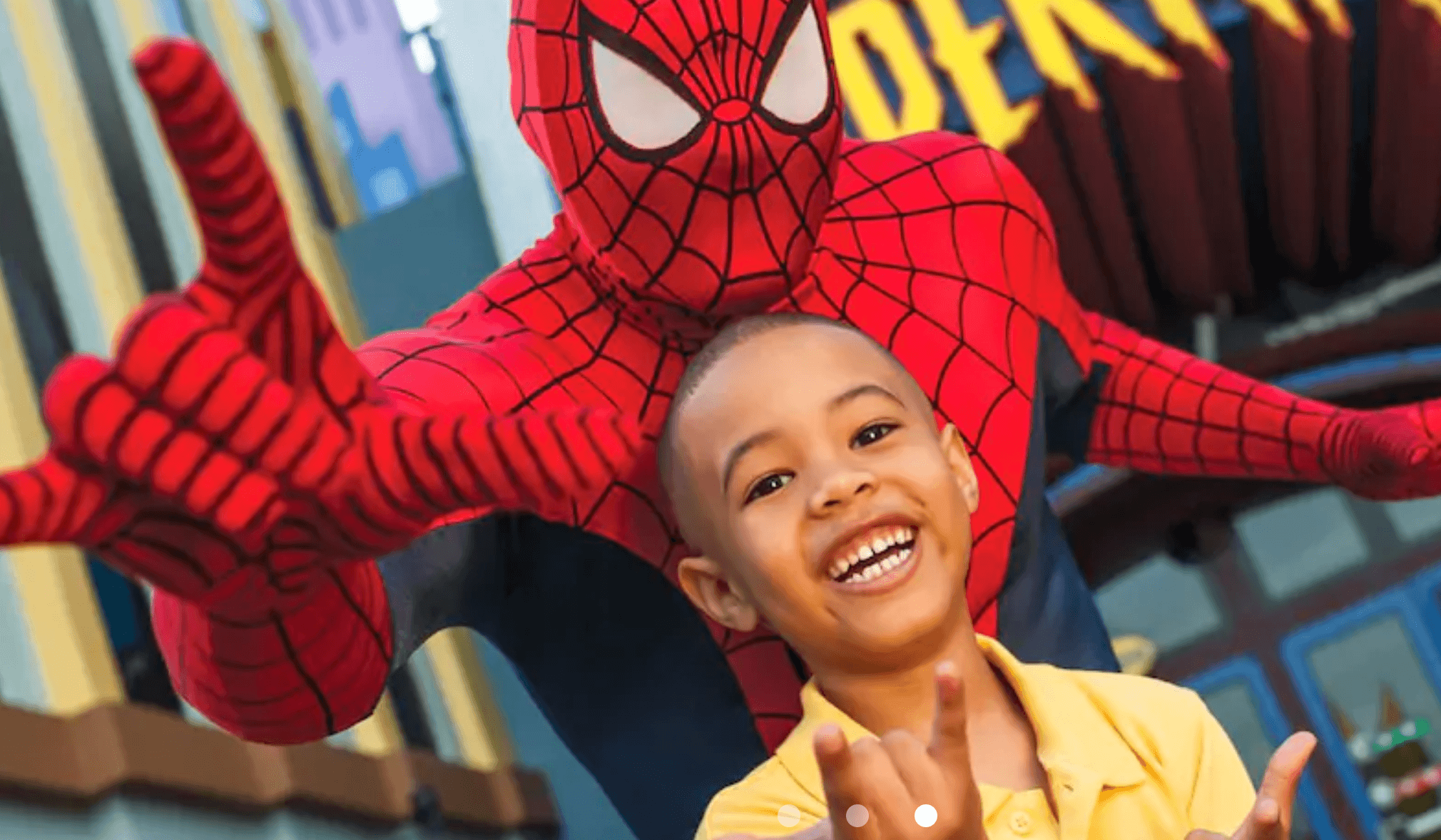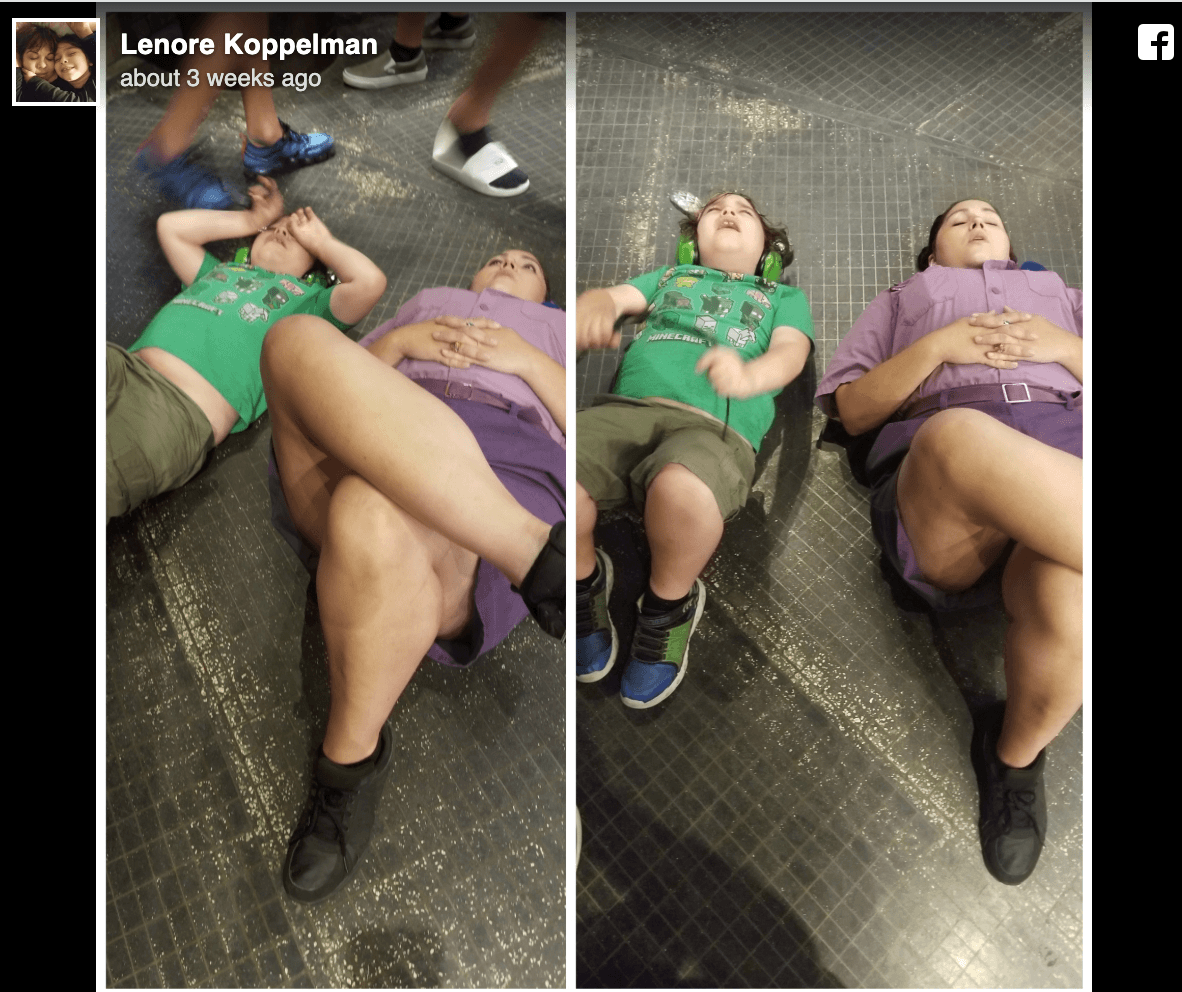
By Mark Schaefer
In my book Marketing Rebellion I make a case for why in the long run, the most human company in a niche will win. Today, I’d like to provide an example of what that looks like.
A recent news story published on Yahoo provides this account:
Lenore Koppelman posted a heartwarming story on Facebook about her family’s trip to the Universal Studios theme park in Orlando, Florida, during which employees were responsive to her son Ralph’s needs every step of the way when he had what she called an “autistic meltdown.”
“Ralph is awesomely autistic, and we are proud to be a neurodiverse family,” she wrote. “As wonderful, loving, intelligent and incredible as Ralph is, sometimes he struggles.”
In her post, Koppelman described how excited her son was to visit the Amazing Adventures of Spider-Man attraction at the park. She explained that the Spiderman ride, which was near the exit, was the ride Ralph was looking forward to most. But when they finally reached the front of the line, the ride broke down.
Jen to the rescue
After waiting so long, and then being disappointed, Ralph “collapsed onto the floor while crowds of people were attempting to exit the ride and the gift shop attached to it,” Koppelman wrote. “He began sobbing, screaming, rocking, hyperventilating, and truly struggling to breathe.”
According to her post, an employee named Jen immediately rushed over to help and lay down on the floor with him, speaking calmly and encouraging him to do whatever he needed to feel better, the Facebook post said. Jen was successful in calming Ralph down, and even offered him a free gift from the park gift shop to make him feel better.

Universal Studios trains its employees to respond to customer issues like this and obviously this paid off for the park.
This is a great human interest story, but it’s also a great story of human-centered marketing in action. I’d like to break down this case study by applying some of the ideas from the book.
The customer is the marketer
This story went viral by moving into the mainstream news. But it wasn’t generated by ad or any branded content. The story of Universal Studios and it attentive service was carried forward by a customer. There is no ad that ever could have made this story work.
People trust people
Trust in companies, brands and ads have declined for ten consecutive years. Who do people trust? People.
If the Universal PR department spread this story it would have gone nowhere. We have an inherent distrust of this type of content. But customers sharing stories represents organic advocacy and that is more powerful than any paid content you could provide.
The personal brand is the company brand
In my book I contend that the brands of the past were created through an accumulation of advertising impressions. The brands of the future will be created through an accumulation of human impressions.
This example demonstrates this exactly. Universal trained its employees well to make positive “human impressions” on its guests. When you experience those contacts it forms the story of the brand.
This could have very easily gone the wrong way. What if the Universal employee stepped over the autistic child or dragged him out of the way? It could have been a nightmare for the park. But the impact of this personal response tells a story of the company no ad ever could.
Our marketing is occurring without us
I begin the book by citing a famous McKinsey study that shows that 2/3 of our marketing is occurring without us. At first, marketers who hear this statistic cringe. It sort of calls into question our existence.
But when you think about this as a consumer, it begins to dawn on you that yes, this is how the world works. We form impressions of companies and brands from conversations with friends, social media, reviews, and posts from trusted influencers.
Markets are conversations. This case study is just a small sliver of the marketing that is going on beyond the walls of the Universal Studios marketing department.
The most human company wins
Our jobs as marketers is to find a way to enter that two-thirds. We can’t buy our way in.
But as Universal demonstrated in this example, focusing on customer experience earned a place in the customer conversation.
An accumulation of human impressions drives the brand.
In the end, the most human company wins.
 Mark Schaefer is the chief blogger for this site, executive director of Schaefer Marketing Solutions, and the author of several best-selling digital marketing books. He is an acclaimed keynote speaker, college educator, and business consultant. The Marketing Companion podcast is among the top business podcasts in the world. Contact Mark to have him speak to your company event or conference soon.
Mark Schaefer is the chief blogger for this site, executive director of Schaefer Marketing Solutions, and the author of several best-selling digital marketing books. He is an acclaimed keynote speaker, college educator, and business consultant. The Marketing Companion podcast is among the top business podcasts in the world. Contact Mark to have him speak to your company event or conference soon.
Illustration courtesy Universal Studios.


